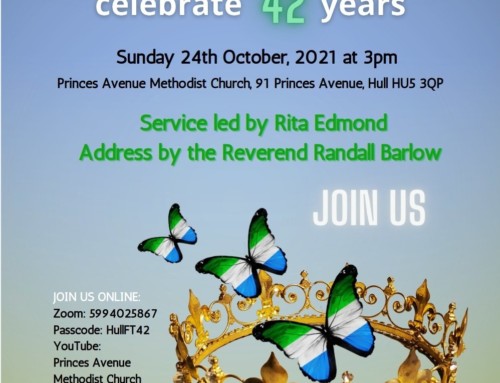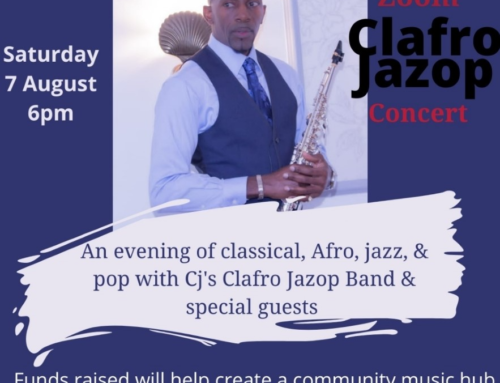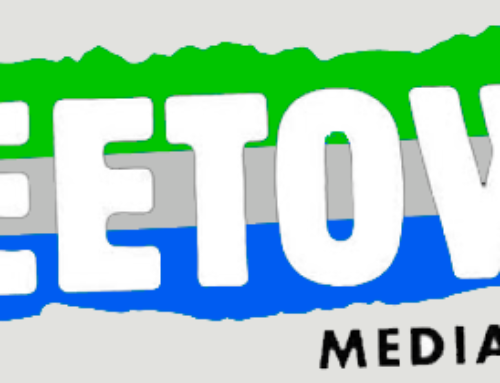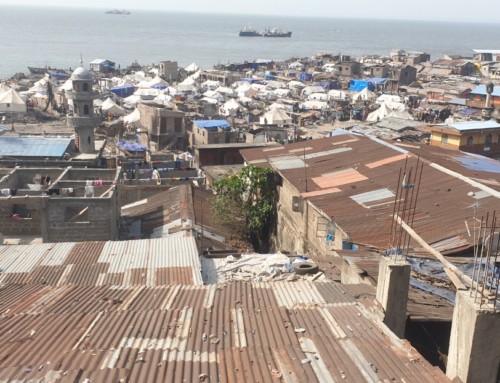In December I met with Mary.
Mary told me some of her story.
She was born in Sierra Leone but moved to the UK when she was eleven year’s old. She went to school in Walthamstow (London) and university in Luton (where she studied BSc Pharmacology with Immunology), Hull (where she studied PG Certificate in Analytical Chemistry) and also Sheffield Hallam, where she obtained her Master’s degree in Social Work, having trained within Mental Health, and Children and Families work.
Mary met her Sierra Leonean husband and they worked and established their family home in the UK. Their oldest child, a daughter, was diagnosed with ASD, and eventually attended Ganton School in Hull where she accessed the specialist provision she needed. When they decided to return to SL, they looked at schools in Freetown which could provide for her needs but found none, in fact, Mary was so shocked at the lack of understanding, and lack of provision for autism, she decided that she would have to do something about this.
While lecturing at the University of Sierra Leone (Fourah Bay College), she had made a good friend in a fellow Sierra Leonean, Alice Browne. She discussed her plans with Alice who was keen to be involved and together they set up the Sierra Leone Autistic Society and the first school to provide evidence-based interventions for Autistic children in Sierra Leone. Alice’s Mother provided them with the venue for the school as it was very difficult to get a rented space due to the stigma attached to ASD in Sierra Leone. They sought out specialist training and professionals who could provide the support and guidance they needed. Browne-Penn Special School has a partner school in West London (Queensmill School) which have supported them immensely. The partnership link is supported by the British Council Connecting classrooms programme, and this has proved a lifeline for them.
Mary, Alice and their team also set up play centre provision (in partnership with Disability Africa; a British Charity), which, in addition to offering facilities which meet the needs of children with disabilities, including those with ASD, also provides training and support for families, and a base for parent support groups, already more than 100 mums belong to these. The model is a very low resource, cost-effective model. The team, including volunteers make many of their own resources and has many partner schools with whom they work to ensure children who can attend main stream school have access and support to do so.
Throughout the journey to date, Mary and Alice have been working tirelessly, lobbying government for support and recognition of ASD in the Disability Act, networking with specialist organisations and charities and fund raising. They were told that you can’t raise money in Sierra Leone, which they proved nonsense. They organised a Christmas Bazaar which raised around £6000 towards the hub they plan to build in Grafton on government land they have been given for the purpose. The hub will include a school, health provision, with family support and an outreach service. Their current venue is at its full capacity as the school space is very small and many children are on waiting list. Home Leone, another charity working in the Freetown area, is very supportive. It has provided the design for the project cost free, and may be providing some materials and some labour free of charge. This allows them to keep the project costs as low as £50,000 (estimate; costing is currently been done by Home Leone).
While continuing to lecture at Fourah Bay College in Freetown, Mary and Alice have access to an excellent field of final year social work students to select those with the right values to offer placements at their school and play centre.
On this visit to Hull, Mary has also met with Dr Alistair and Dr.Margaret Robertson of Jacob’s Well to discuss their continuing involvement. Jacob’s Well is already providing a vehicle for Sierra Leone Autistic Society as transportation is still a huge need, and have offered some school resources once the new school is built.
In future, the Sierra Leone Autistic Society wishes to develop a full range of diagnostic services; this is currently in the planning phase with an Italian organisation (RCRC) who have offered to support Mary and the SLAS team with this provision. The Italian team have a diagnostic centre in Italy which Mary has visited; it is run by a team of Psychologists, amongst others. This diagnostic service will be available to the families of those with cognitive impairments.
The future plan for the Sierra Leone Autistic Society includes social enterprise run by S.L.A.S.’ beneficiaries aged 18 and above. It is hoped that if communities were to see people with cognitive impairments contributing to those communities through agriculture projects amongst others, then that in itself will help to reduce the huge stigma attached to brain-based conditions like ASD. Income generation, for example growing food, and selling, and building a socially inclusive model which provides education and employment for vulnerable and marginalised groups will not only help to reduce stigma, but it will hopefully ensure that post-18, those young people will not lose all the gains made from SLAS services, regress, and be isolated in their communities; they will be engaged socially, on skills training and employment. SLAS also wishes to set up more play centres nation-wide. It is hoped that with the recent approval of Government for Browne-Penn Special School to be Government assisted, the school’s future is sustained. S.L.A.S.’ work is huge; bigger than just the school; it will encompass healthcare provision, social care provision, skills training and employment support for those post-18 years of age, as well as parent/carer support. As such, local fundraising and seeking support internationally will continue to be part of their strategy.
Mary is very grateful to the Freetown Society for their motivation; particularly the civic coin she received from the Lord Mayor and the support for S.L.A.S.’ annual World Autism Day awareness raising events.






